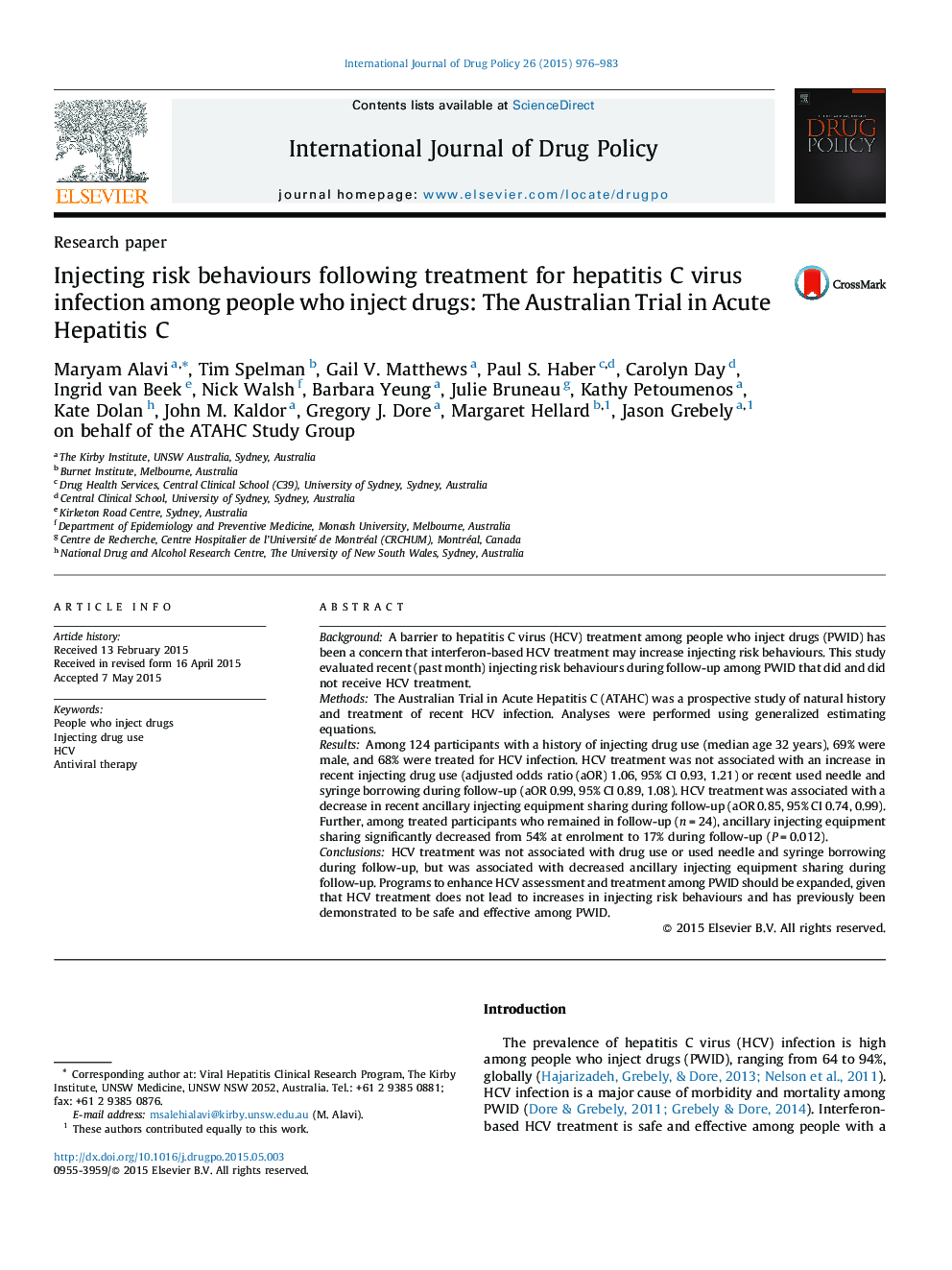| Article ID | Journal | Published Year | Pages | File Type |
|---|---|---|---|---|
| 1075016 | International Journal of Drug Policy | 2015 | 8 Pages |
•There is a concern that HCV treatment may increase injecting risk behaviours.•HCV treated and untreated participants were followed for a median of 1.8 years.•Association between HCV treatment and injecting risk behaviours was assessed.•HCV treatment was not associated with injecting drug use or used needle and syringe borrowing.•HCV treatment was associated with decreased ancillary injecting equipment sharing.
BackgroundA barrier to hepatitis C virus (HCV) treatment among people who inject drugs (PWID) has been a concern that interferon-based HCV treatment may increase injecting risk behaviours. This study evaluated recent (past month) injecting risk behaviours during follow-up among PWID that did and did not receive HCV treatment.MethodsThe Australian Trial in Acute Hepatitis C (ATAHC) was a prospective study of natural history and treatment of recent HCV infection. Analyses were performed using generalized estimating equations.ResultsAmong 124 participants with a history of injecting drug use (median age 32 years), 69% were male, and 68% were treated for HCV infection. HCV treatment was not associated with an increase in recent injecting drug use (adjusted odds ratio (aOR) 1.06, 95% CI 0.93, 1.21) or recent used needle and syringe borrowing during follow-up (aOR 0.99, 95% CI 0.89, 1.08). HCV treatment was associated with a decrease in recent ancillary injecting equipment sharing during follow-up (aOR 0.85, 95% CI 0.74, 0.99). Further, among treated participants who remained in follow-up (n = 24), ancillary injecting equipment sharing significantly decreased from 54% at enrolment to 17% during follow-up (P = 0.012).ConclusionsHCV treatment was not associated with drug use or used needle and syringe borrowing during follow-up, but was associated with decreased ancillary injecting equipment sharing during follow-up. Programs to enhance HCV assessment and treatment among PWID should be expanded, given that HCV treatment does not lead to increases in injecting risk behaviours and has previously been demonstrated to be safe and effective among PWID.
